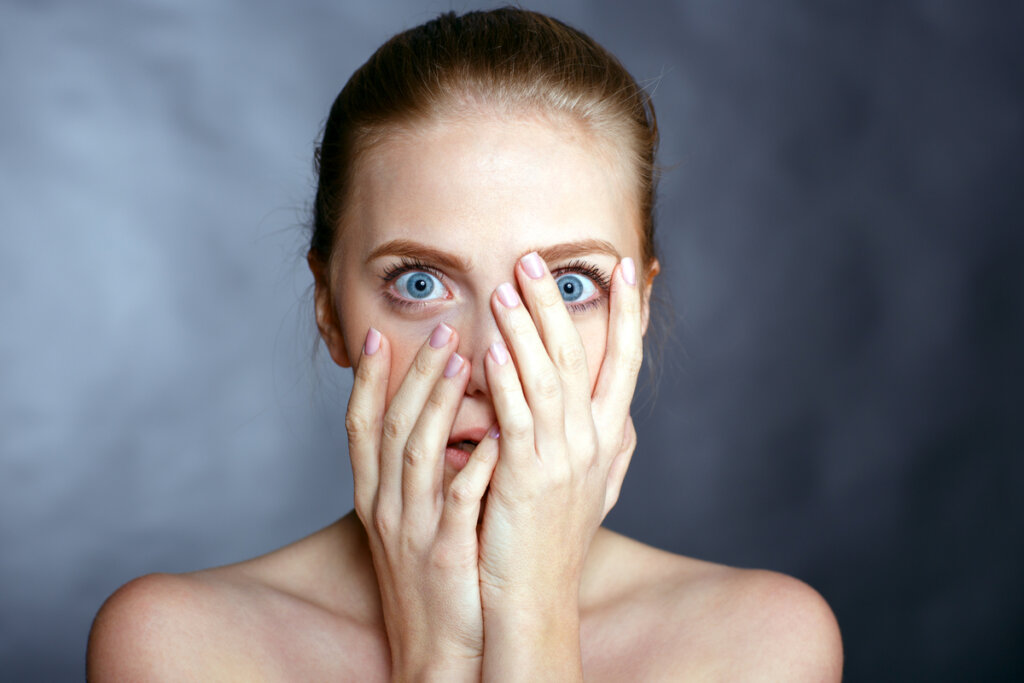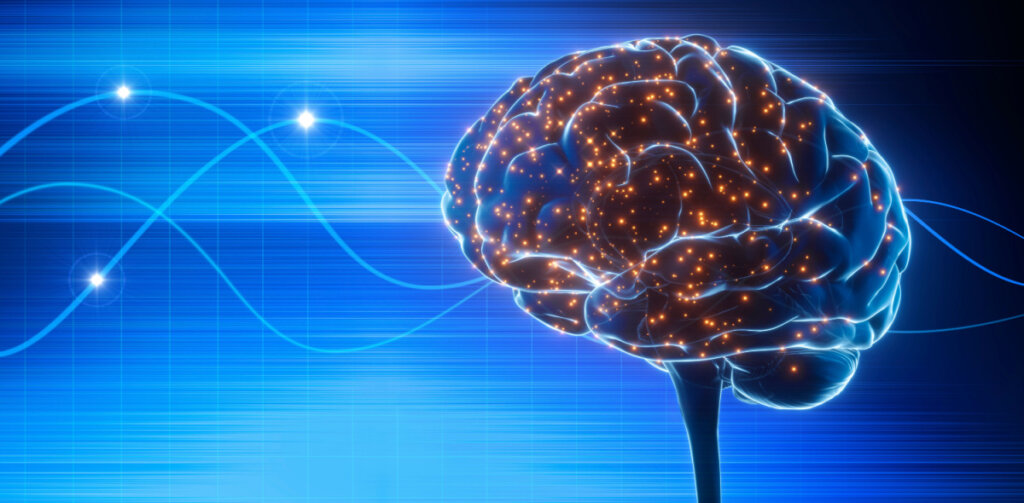Déjà Rêvé: A Fascinating Phenomenon


Written and verified by the psychologist Valeria Sabater
Have you ever experienced déjà vu (already seen)? It’s highly likely. This type of paramnesia in which you have the feeling that what you’ve just experienced you’ve experienced before is quite common. In fact, a great deal has been written on the subject, movies have been made about it, and it’s a phenomenon well-recognized by the field of neuroscience.
There’s nothing supernatural about this kind of experience. It simply involves a recurring memory failure in the temporal lobe. However, what if we asked you if you’ve ever experienced déjà rêvé (already dreamed)? This is a singular experience in which, suddenly, any circumstance or situation evokes something that previously appeared in your dreams.
Some people feel that they spend their whole lives reliving their dreams. This is déjà rêvé. Whereas, with déjà vu, you think that “I’ve already experienced this”, with Déjà rêvé you believe “I’ve already dreamed this”.
We’re going to explain why this phenomenon happens and who tends to experience it.
Currently, there’s not much research on the subject of déjà rêvé (already dreamed). However, we know that it’s a type of reminiscence that we’ve all experienced at certain points. On the other hand, it’s also a really common experience among those who suffer from epileptic seizures.

Déjà rêvé
The brain and the human mind are intricate entities about which we still don’t know a tremendous amount. Consequently, there are many neurological and memory disorders that aren’t currently 100 percent understood. In fact, both déjà vu and déjà rêvé respond to experiential phenomena that science has been trying to unravel for decades. That said, we do know a certain amount about these processes.
Déjà rêvé is defined as an experience in which the individual feels that they’re unexpectedly living an experience that they’d dreamed of at an earlier time. Sometimes, they even believe that they’re actually in a dream. As neurologists point out, this sensation is far more complex than déjà vu.
Here are some of its defining characteristics:
How does it manifest?
In 2010, the CG Jung Küsnacht Institute (Austria) conducted research on the phenomenon of déjà rêvé. They surveyed 444 students and found that 95.2 percent of them had experienced this phenomenon at some point. This is completely understandable. In fact, if each one of us were asked, most of us would affirm that we’ve had this experience at some point in our lives.
However, some people frequently experience this type of paramnesia. There are three types:
- In the first kind, the experience turns out to be identical to a specific dream, which the individual clearly remembers. It’s known as the episodic type.
- The second type refers to the somewhat diffuse perception that what’s happening in the here and now reminds the individual of a past dream that they can’t clearly identify.
- The third kind of déjà rêvé is the most complex and striking. These people suddenly enter a dream state. Their reality is distorted. In fact, they completely lose contact with it and feel as if they’re immersed in a dream world. It’s a brief but overwhelming experience.
Although déjà-rêvé is reminiscent of déjà-vu, in reality, they’re two extremely different phenomena.

Why it happens
When someone tells you that something that’s happening to them now they’ve previously dreamed about, you might feel some surprise and even skepticism. You might even ask yourself if it means they possess certain extrasensory or precognitive abilities.
As we mentioned earlier, there are still many phenomena that science still doesn’t understand. But, this doesn’t mean that there’s no scientific explanation for this process. In fact, it’s attracting increasingly more attention. Consequently, more studies are gradually appearing with information on the subject. For starters, neurologists claim that this experience, while similar, is quite different from déjà vu. Here are some of the reasons it occurs.
When real life reminds us of a dream
As we mentioned earlier, it’s quite possible that around 95 percent of us have experienced this phenomenon at some time or another. Moreover, its trigger is understandable. While you forget many of your nocturnal dreams, they remain in the deepest of the mental strata. However, sometimes, there are certain events or situations that make you remember what you dreamed of a few days ago.
It’s like when you go to a cafeteria and see someone drop their cup of coffee. That scene suddenly evokes in you something similar that you dreamed of. It makes you have the (erroneous) perception that what’s happening is exactly the same as your recent dream.
In everyday life, it’s really common to suddenly remember fragments of dreams that you had a while ago, or even the night before, that you appeared to have forgotten.
The stimulated brain and epilepsy
It’s one thing to experience one or two episodes of déjà-rêvé a year, and quite another to have them almost daily. In 2018, the University Hospital of Toulouse, the Brain and Cognition Research Center (CNRS), and the University of Nancy conducted an interesting study.
The researchers discovered that electrical brain stimulation (EBS) induces the memory of past dreams. Demonstrating this is more important than you might think. That’s because people with epilepsy have always claimed to experience this feeling. Indeed, they often feel that many of the things that happen to them, they’ve already experienced in their dreams.
This study is the first to demonstrate the existence of déjà-rêvé as a habitual experiential phenomenon in patients with epilepsy. It’s a neurological peculiarity that often occurs during seizures.
An innocent phenomenon
In the vast majority of cases, experiencing déjà-rêvé, like déjà vu, responds to certain strange but normal factors. Undoubtedly, they’re somewhat disturbing and manage to leave behind the strange feeling that something that should be new to you, you’ve experienced before. Either in the past or in your dreams.
Déjà-rêvé isn’t really a problem, it’s more of an amusing experience. On the other hand, if you have the clear feeling that you’re losing touch with reality and that what you’re seeing and feeling often appears to be distorted, don’t hesitate to seek professional help.
Your mind can sometimes play tricks on you and it’s always useful to know why. As a rule, the experience of déjà-rêvé is largely a common and innocuous phenomenon.
All cited sources were thoroughly reviewed by our team to ensure their quality, reliability, currency, and validity. The bibliography of this article was considered reliable and of academic or scientific accuracy.
- Curot J, Valton L, Denuelle M, Vignal JP, Maillard L, Pariente J, Trébuchon A, Bartolomei F, Barbeau EJ. Déjà-rêvé: Prior dreams induced by direct electrical brain stimulation. Brain Stimul. 2018 Jul-Aug;11(4):875-885. doi: 10.1016/j.brs.2018.02.016. Epub 2018 Feb 24. PMID: 29530448; PMCID: PMC6028740.
- Funkhouser, A. T., & Schredl, M. (2010). The frequency of déjà vu (déjà rêve) and the effects of age, dream recall frequency and personality factors. International Journal of Dream Research, 3(1), 60–64. https://doi.org/10.11588/ijodr.2010.1.473
This text is provided for informational purposes only and does not replace consultation with a professional. If in doubt, consult your specialist.








